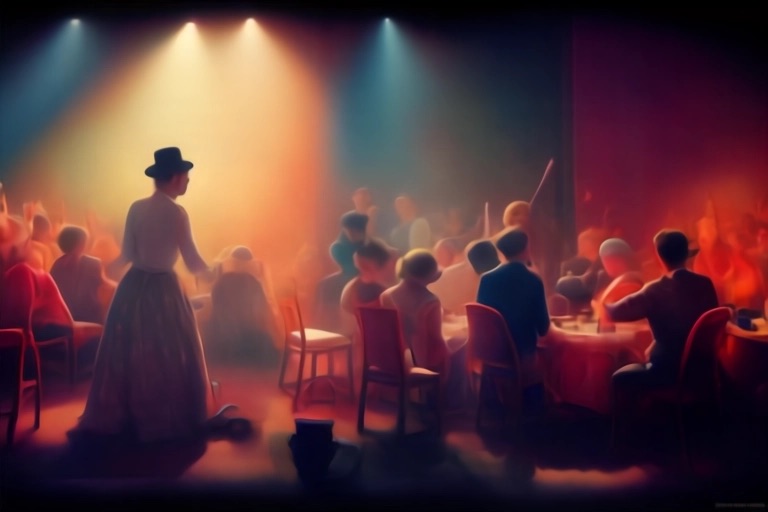Hollywood Producers' negotiating style threatens the industry Fiery Filmset by David August Hollywood producers are facing mounting pressure to reach a deal with striking writers, as more recognizable faces in the industry prepare to join picket lines once directors'...
Hollywood Producers' negotiating style threatens the industry
Hollywood producers are facing mounting pressure to reach a deal with striking writers, as more recognizable faces in the industry prepare to join picket lines once directors' and actors' contracts run out as well. Producers have only weeks to avoid a potentially disastrous situation, as audience backlash against intransigence could escalate. Economic uncertainty, compounded by a recent interest rate hike, adds to the urgency for producers to resolve the issue and maintain market stability.
Industry experts suggest that a deal with writers now on strike is a solvable problem, and could free up valuable resources to handle future economic challenges. With audiences increasingly interested in convenient, on-demand viewing experiences, any further disruption to their preferred entertainment could lead to lasting damage to brand sentiment and subscriber bases, ultimately resulting in a loss of customers.
While union-busting consultants may suggest a hard-line approach, the risks of such a strategy outweigh the benefits. As viewing habits shift rapidly, producers cannot afford to alienate their core audience by attempting to underpay workers, leaving them with no material to show. It is clear that producers must prioritize a deal with writers to avoid damaging long-term consequences and to maintain their market position.
As Hollywood producers continue to grapple with the ongoing writers' strike, they face the stark reality that long labor strikes can have disastrous effects on their companies. History shows that prolonged strikes can lead to financial losses, damaged relationships with talent, and negative public perception.
One of the most infamous examples of a long strike's impact on companies is the 1980 strike by the Screen Actors Guild (SAG) and the American Federation of Television and Radio Artists (AFTRA). The strike lasted for over 3 months, causing delays and cancellations of TV shows and films, and resulted in hundreds of millions in losses for the entertainment industry. The strike also included a boycott of the Emmy Awards ceremony by all but one single Emmy winner.
Another example of the potentially devastating effects of labor strikes on a media business is the case of the 1987 strike by the National Football League (NFL) players. The strike lasted for 24 days, causing the season to be shortened to 15 games per team. The NFL's total revenue loss due to the strike was estimated to be over a billion dollars, and it took several years for the league to recover from the effects of the strike.
In 2007–2008, the Writers Guild of America (WGA) went on strike for about 100 days, demanding higher pay for streaming content. The strike caused delays and cancellations of TV shows and films, and resulted in an estimated $2.5 billion loss for the entertainment industry. It also led to strained relationships between writers and producers, as well as a decline in public perception of the industry.
While these strikes were ultimately resolved, the importance of reaching a deal quickly to avoid long-term damage to the industry and to the companies involved is real and present tense. The past strikes highlight the potential risks to producers of a prolonged labor dispute.
The current negotiations between Hollywood producers and striking writers are particularly important, given the economic uncertainty caused by wider economic factors and the ongoing shift in viewing habits.
Beyond financial losses and damaged relationships, long labor strikes can also lead to negative public perception of the entertainment industry. Audience sentiment towards the industry is already fragile, with growing concerns over diversity and inclusion in Hollywood. Any further disruptions to viewers' preferred entertainment options could result in lasting damage to the industry's reputation and a loss of customers.
Finally, with these viewing preference possibly in flux, and fact technological hurdles to building distribution on one's own are lower than ever before, the producers risk making their own possible competitive existential threat a reality: the writers learning to finance, market and distribute their work themselves. Producers in the past could rely on big obstacles like access to movie theatres and broadcast airwaves to keep their position in the entertainment ecosystem secure, even during labor actions.
Today, most forms of entertainment can reach their audiences with out any involvement of theatres, broadcast airwaves or other technological bottlenecks. While it would take a lot of change for the writers to cut the producers out of the equation of modern entertainment, the longer the producers refuse to deal and the strike drags on, the higher the incentives for them, and their companies, to be circumvented entirely. Producers delays slowing a quick and stable resolution speeds up the process of their own obsolescence.
Ultimately, the success of the negotiations between Hollywood producers and striking writers will have significant consequences for the industry's future and the viability of producers' businesses as profitable, ongoing concerns. It is essential that a deal is offered soon to avoid long-term damage, and to ensure that the industry can continue to thrive in the face of ongoing challenges.












